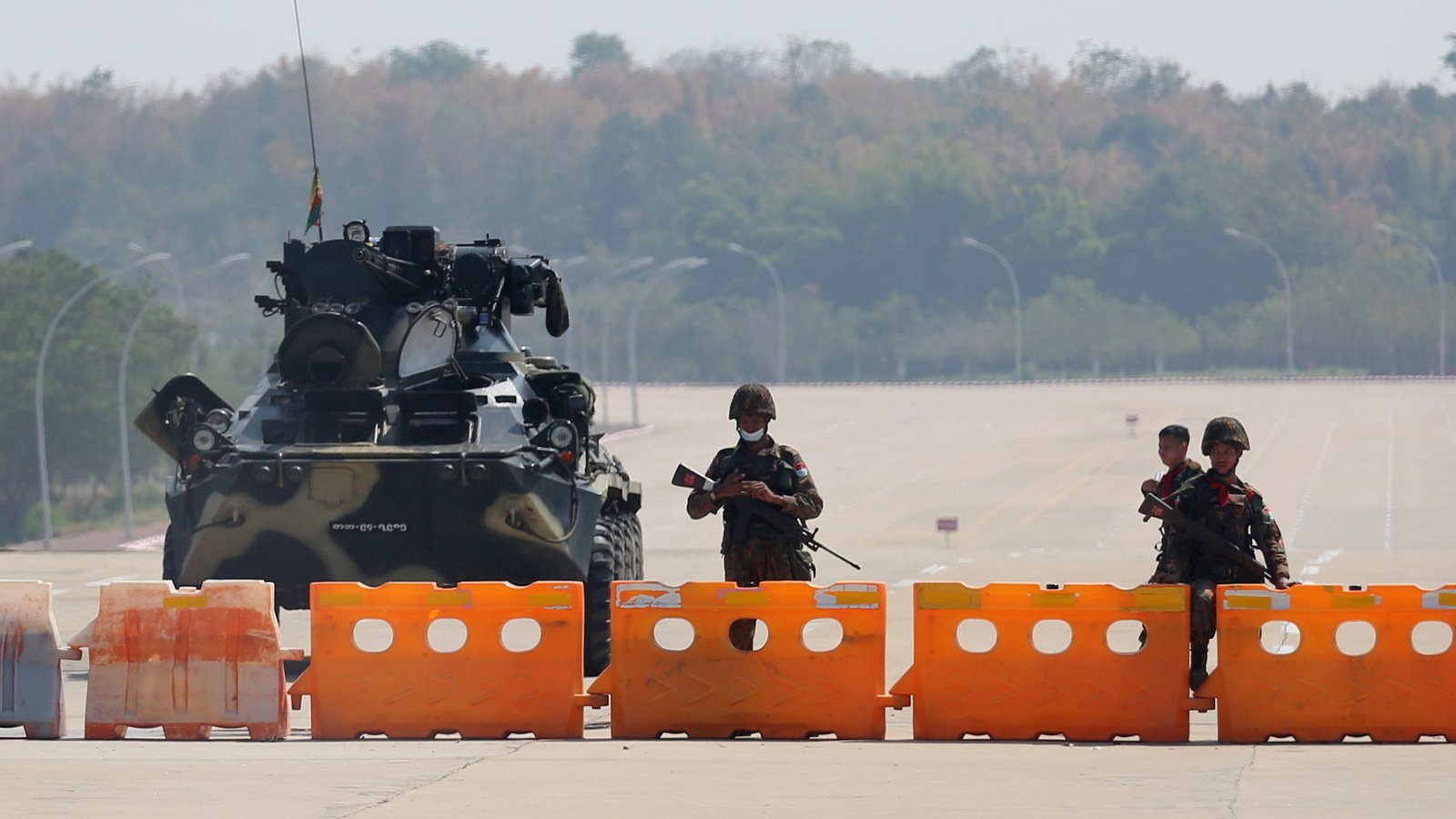![]()
On Feb. 1, Myanmar’s military seized control of the country in a coup against the democratically-elected government of State Counselor Aung San Suu Kyi, who was detained along with President Win Myint and other leaders of her National League for Democracy (NLD) party. Myanmar’s military, also known as the Tatmadaw, has declared a national state of emergency for one year and announced that Gen. Min Aung Hlaing is in charge. In the days since the coup, tens of thousands of people have taken to the streets of Myanmar’s largest cities in protest and have demanded the release Suu Kyi and her allies. Protestors fear a return to the military rule the country endured for decades until 2011, when the former military junta was dissolved and began a tenuous transition to democratic government.
Myanmar’s transition to democracy has been largely crippled by the military’s continued dominance in the government, having ensured its power through provisions in the country’s 2008 constitution. The Constitution reserves 25% of parliament seats for the military and requires that any constitutional changes need approval from over 75% of parliament, giving it veto power over any amendment. In addition to this, the military has maintained control over three powerful government ministries: defense, home affairs and border affairs. As such, there has been a struggle for power between the military and pro-democracy forces within government, led by Suu Kyi’s NLD. The irreconcilable co-existence has allowed for less progress than hoped for by many.
The coup was carried out in response to Myanmar’s 2020 general election, which Suu Kyi’s party overwhelmingly won, dealing a major blow to the military and its proxy party, the Union Solidarity and Development Party. The military refused to accept the election results and alleged voter fraud, but the country’s election commission rejected these claims, the BBC reports. The military defends the brazen power grab that followed as justifiable under the constitution, which permits the military to take control in any situations that could cause “disintegration of the Union, disintegration of national solidarity, and loss of sovereign power,” according to the Council on Foreign Relations. The military argued that the allegations of election fraud fit this description. Police in Myanmar have charged Suu Kyi with illegally importing walkie talkies and breaking a law used to prosecute those who violate coronavirus restrictions, a move that may allow her to be detained indefinitely without trial.
Suu Kyi, the daughter of Myanmar independence hero Gen. Aung San, was previously detained for 15 years for her opposition to the military dictatorship of Gen. U Ne Win and the military junta that succeeded him and for her leadership role in the NLD. Suu Kyi co-founded the party in 1988 after rising to prominence during the historic student-led protests that same year.
In 1990, her party won over 80% of the contested parliamentary seats, but the results of the election were—in what was apparently to become a pattern—disregarded by the military government. Today, Suu Kyi, a Nobel Peace Prize Laureate, is head of the NLD and, until the coup, was the country’s de facto leader.
Domestically, she is immensely popular among the country’s Buddhist Burman majority. Internationally, however, Suu Kyi has had her once gleaming reputation diminished by her comparatively small strides in strengthening Myanmar’s democracy and her failure to acknowledge the military’s atrocities against the country’s persecuted Rohingya minority. The country’s ethnic Burman majority generally holds little sympathy for this minority, and the Rohingya people are not recognized as Myanmar citizens.
Since its independence, Myanmar’s legal and political system has embedded within it themes of discrimination against minorities. The country only recognizes members of ethnic groups that dwelt in Myanmar before 1823 (when Britain first occupied parts of the country) as full citizens, rendering entire minority groups, such as the Rohingya, effectively stateless, according to the Council on Foreign Relations. Under the 2008 constitution, only full citizens are entitled to most rights and political participation. This manifested itself in the 2020 election, in which the country’s election commission canceled voting in regions of conflict-rife minority states, disenfranchising nearly 2 million people.
Despite this, people from Myanmar’s ethnic minorities have joined in the protests against the coup, their well-founded mistrust of a military that has brutally repressed their armed struggles for more autonomy outweighing their strained relationship with Suu Kyi’s NLD. However Suu Kyi and her party are viewed by spurned domestic minorities and those in the international community with unmet high expectations, it is clear that her NLD is the best hope for democracy and the betterment of the country.
What the future holds for Myanmar, at this point, no one knows. The military plans to hold another election, no doubt rigged such that its proxy party will win, pledging to practice a “genuine discipline-flourishing multiparty democratic system.” However, no amount of skullduggery can make up for the fact that the military has earned the hatred of the vast majority of Myanmar’s people—majority and minorities alike—people to whom a despotic military government is all too familiar, people who have suffered much and fought or waited for the day when their government is of the people, by the people, and for the people.
Photo by Stringer/Reuters





